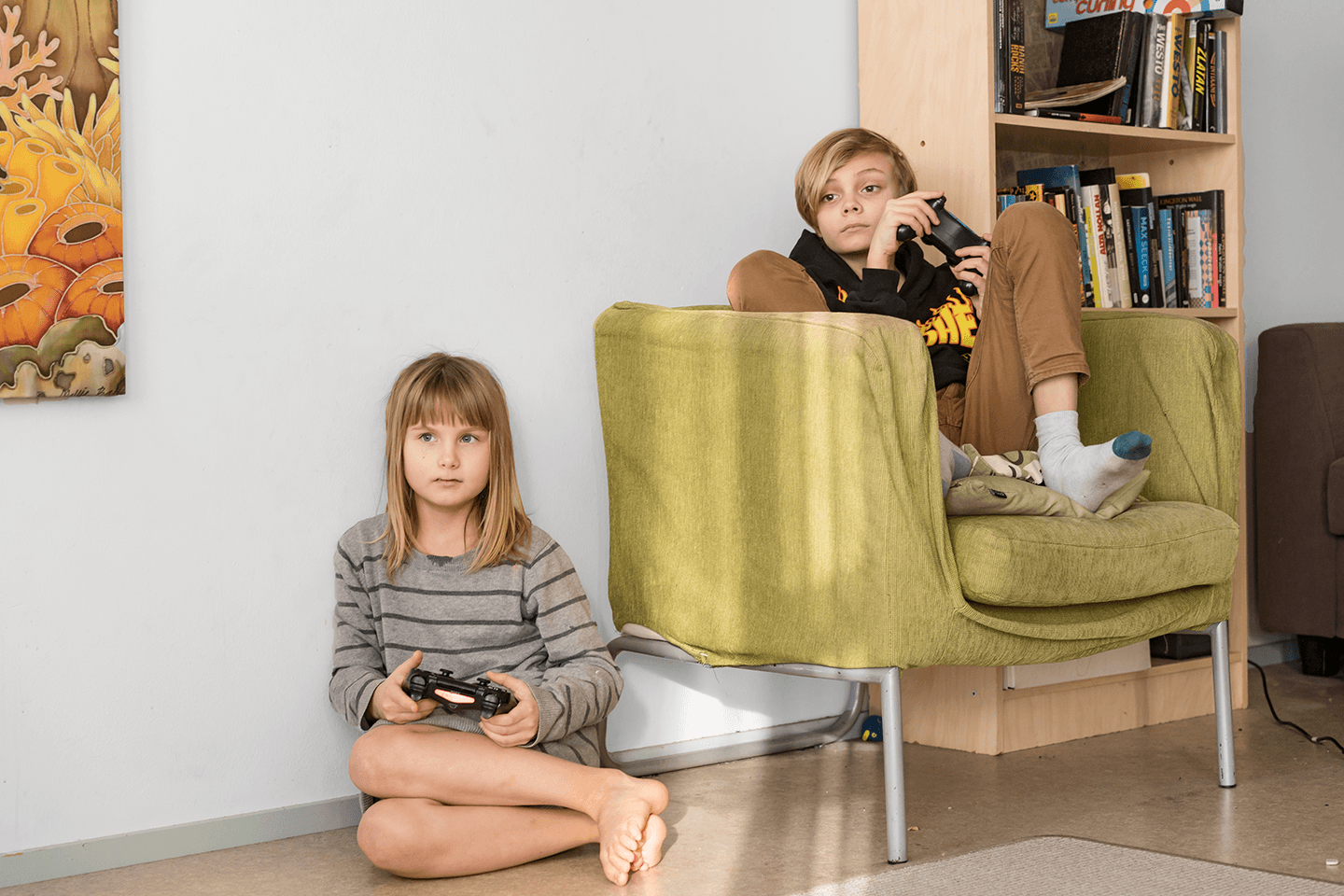Digital gaming
At its best, digital gaming is a nice, shared leisure activity for young people. Adults can support young people’s gaming hobby by offering accurate information about risks.

Digital gaming on computers, consoles and mobile devices has become a significant part of today’s popular culture and society. In Finland, approximately 60 per cent of 10–75-year-olds play games at least once a month. Especially mobile gaming has become increasingly popular during the past few years.
As the key reasons for gaming, most gamers list having fun, the social aspects of gaming as well as relaxation and getting their mind off everyday concerns.
Public debate often focuses mainly on violent games although many games are good fun suitable for the whole family. Depending on the games, the amount of gaming and gamer-related risk factors, gaming can either promote or hinder young people’s development.
A positive gaming culture among children and young people can be promoted through game education by sharing accurate information about gaming both to children and young people and to their parents and professionals. A parent or an educator who understands gaming is better equipped to choose the right kinds of games, tap into the educational potential of games and prevent potential harmful effects of games. Read more about game education.
Age limits have been set for games to protect children and young people from content that is estimated to be harmful to them. Read more about digital games and their age ratings.
Gaming is a popular leisure activity among young people and nearly all those of school age play games at least occasionally. At its best, gaming is a nice, shared hobby for young people. Digital gaming has become such an important part of children’s and young people’s culture that non-gaming may lead to exclusion from social interaction.
The relation between money and games has transformed with the new revenue models. Nowadays, gaming takes place increasingly online. In addition to traditional game items purchased at a store with a one-off payment, games can now be downloaded digitally from online services.
Instead of or in addition to a one-off payment, games feature constantly published updates and add-ons that are subject to a fee. The sales of different game-related virtual commodities have become a considerable part of gaming services. Often, the actual mobile game is free but includes the opportunity to pay fees for additional content.
Gaming can be considered problematic if it starts to have negative effects on the gamer’s life, such as interpersonal relationships, school or health. Problematic gaming refers to scenarios such as the gamer having no other interests in their life besides gaming or having gaming replace spending time with others. Read more about a project focusing on problematic gaming.
For further reading:
Game Educator’s Handbook
Game Educator’s Handbook 2 (articles)
Children & Media – A Handbook for Parents and Guardians
Source: Pelaajabarometri 2018 survey

